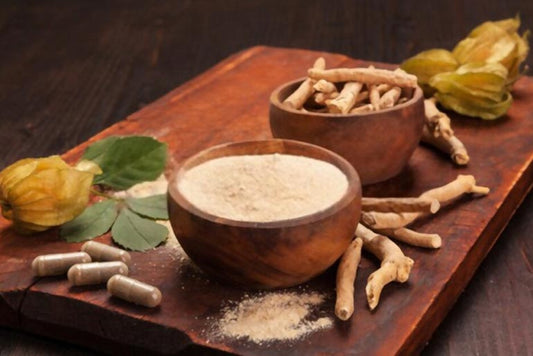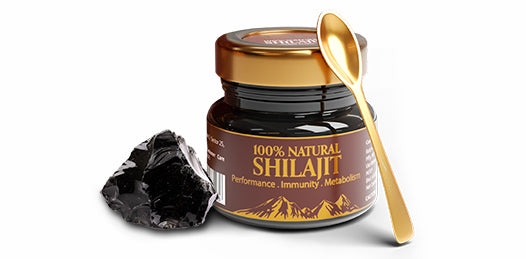Sandalwood is a key component of Ayurvedic treatment and is prized for both its unique scent and deep spiritual meaning. Sandalwood, or 'Chandan' as it is often called, has been revered for millennia in various cultures, especially in India. It has numerous skin-benefiting properties that make it a popular element in many cosmetic and medical products.
Historical Significance of Sandalwood in Ayurveda
More than just a fragrant wood, Sandalwood, also known as Santalum album, is an essential component of Ayurvedic medicine and is ingrained in the spiritual and cultural fabric of many South Asian traditions, particularly those in India. Its long history of use in Ayurveda attests to the relevance of both its wide range of therapeutic benefits and fragrant features. This esteemed component is essential to skincare, medicine, and rituals, which supports its broad applicability in a variety of health and wellness contexts.
Cultural and Ritualistic Uses

Sandalwood has long been a choice for spiritual and religious activities because of its rich, woodsy aroma. In Hindu worship and rituals, it is frequently applied to the deities or used to anoint worshippers in the form of paste or oil. It is thought to cleanse and soothe the mind and spirit. Its calming scent is supposed to encourage peace and aid in deeper stages of concentration and relaxation for those who meditate.
Medicinal Applications in Ayurveda
Sandalwood is highly valued for its cooling effects in Ayurvedic medicine. It is utilized to balance the Pitta dosha, which is in charge of the body's metabolism and synthesis of energy. People may suffer from excessive heat, inflammation, and accompanying conditions including fever, ulcers, and indigestion when Pitta is out of balance. By using its ability to calm and soothe the body's processes, Sandalwood is used to address several problems.
Skincare and Therapeutic Benefits
Equally well-known for its skincare properties is Sandalwood. It's a great option for treating a variety of skin disorders because of its antibacterial and anti-inflammatory qualities. Sandalwood is recommended in Ayurvedic writings for its calming properties on the skin, which make it perfect for healing rashes, acne, sunburns, and dry skin. Its moisturizing qualities also aid in the fight against chapped and dry skin, encouraging a balanced, healthy complexion.
Additionally, Sandalwood oil is extracted and utilized in aromatherapy and massages to promote general wellbeing, reduce anxiety, and soothe the body and mind. Sandalwood oil's calming scent is thought to improve mental serenity and clarity, which benefits mental health.
Sandalwood in Modern Ayurvedic Practice
Sandalwood continues to be an asset in modern Ayurvedic medicine today. Its uses have expanded to encompass its incorporation into contemporary skincare goods, such as creams, lotions, and essential oils, which utilize its advantageous qualities to treat and revitalize the skin. Sandalwood's holistic healing properties are demonstrated by the fact that medical professionals combine it with other botanical substances to make treatments that balance the three doshas of Pitta, Kapha, and Vata.
The Science Behind Sandalwood's Skin Benefits
It has been scientifically demonstrated that Sandalwood contains anti-microbial, anti-inflammatory, and antioxidant qualities. It is also rich in essential oils. Because of these qualities, Sandalwood is especially useful for skin care. Here are some advantages of Sandalwood for the skin:
Anti-Ageing Properties: Sandalwood's abundance of antioxidants helps fight against free radicals, which are responsible for ageing. Frequent use can aid in the reduction of wrinkles and fine lines, giving the skin a more youthful appearance.
Brightening of the Skin: Sandalwood's natural oils aid in skin detoxification. It is well recognized to lessen blemishes and stop new ones from developing, giving the skin a more radiant, brighter appearance.
Treatment for Acne: Sandalwood's antibacterial qualities make it a useful tool against microorganisms that cause acne. Furthermore, because of its anti-inflammatory properties, acne breakouts' associated redness and pain are reduced.
Calming Sunburn: Sandalwood's ability to reduce heat makes it a perfect remedy for burnt skin. It facilitates quicker skin healing while lowering redness and burning sensations.
Hydration: By creating a barrier of security, Sandalwood aids in keeping moisture in the skin. This is especially helpful for people who have dry skin since it keeps the skin nourished and plump by preventing moisture loss.
How to Incorporate Sandalwood in Your Skin Care Routine?

Your skin's health can be drastically improved by including Sandalwood in your everyday skincare routine. Here are some efficient methods to use Sandalwood:
Sandalwood Powder Mask: Make a mixture by combining milk, turmeric, and Sandalwood powder. Once a week, use this mask to enhance the texture and tone of your skin.
Sandalwood Oil: Apply a few drops of Sandalwood oil to your skin after mixing it with a carrier oil, such as coconut oil. This may aid in the skin's healing and hydration.
Sandalwood Water: To keep your skin hydrated and cool throughout the day, use Sandalwood water as toner or a cooling spray.
DIY Sandalwood Skincare Recipes
Here are a few recipe ideas that utilize the benefits of Sandalwood to get you started:
- Face mask with Sandalwood and Rosewater
1 tablespoon of powdered Sandalwood
2 tsp rosewater
Combine to create a silky paste, then dab on the face and neck. After 20 minutes, leave it on and rinse with cool water.
- Anti-Aging Sandalwood and Honey Mask
1tablespoon of powdered Sandalwood
1 tsp honey
A small amount of turmeric
Sufficient milk to make a paste
After applying, rinse with lukewarm water after 20 minutes.
Precautions and Considerations

Although Sandalwood is well known for its calming, fragrant, and healing qualities, it is important to use it carefully, just like any other ingredient in skincare products, to prevent any negative reactions. If you decide to use Sandalwood in your beauty routine, bear the following specific warnings and factors in mind:
- Allergy Testing (Patch Test):
Patch testing is essential before adding Sandalwood, or any new product, to your beauty routine. This test can help prevent negative responses over bigger skin areas and helps establish how sensitive your skin is to the substance. Here's how to go about it:
Step 1: On a hidden region of your skin, such as the inside of your wrist or behind your ear, apply a small amount of the Sandalwood product—whether it be an oil, powder, or blend.
Step 2: Let the area sit without cleaning it for a minimum of 24 hours. Keep an eye out for any symptoms of breakouts, redness, inflammation, or itching on the skin.
Step 3: Rinse the area with water right after and stop using if you feel discomfort or an allergic reaction. It's usually safe to apply the product to a greater region of skin if there is no reaction.
- Concentration and Usage:
Sandalwood can be found in products at a wide range of concentrations, and using it in large amounts might irritate skin, especially in people with sensitive skin types. To reduce the possibility of skin sensitivity, always use skincare products according to the stated usage guidelines. If you use essential oils, make sure they are adequately diluted with a carrier oil like coconut, almond, or jojoba oil.
- Quality of Product:
The effectiveness and safety of Sandalwood products can be significantly impacted by their quality and purity. Sandalwood that is of low quality or has been tampered with may contain contaminants or additives that cause adverse skin reactions. If at all possible, get Sandalwood from reliable suppliers; for optimal quality and effectiveness, use organic and responsibly obtained Sandalwood.
- Skin Condition Considerations:
Sandalwood should not be used by people who have psoriasis, rosacea, or eczema on their skin. Although Sandalwood's active ingredients are normally calming, they can occasionally make some situations worse. Before utilizing Sandalwood products, speaking with a dermatologist or other healthcare professional can offer specific recommendations and safe usage instructions.
- Environmental and Ethical Considerations:
Due to its popularity, several areas have seen overharvesting and endangering of this valuable resource. Aside from aiding in the preservation of this priceless resource, choosing Sandalwood products that are derived responsibly also promotes moral behavior in the skincare sector.
Conclusion
Sandalwood is a modern super-ingredient that can treat a variety of skin issues, from acne to aging, and is no longer just a traditional beauty secret. You may leverage the power of nature's own beauty enhancer, Sandalwood, to get healthier, more vibrant skin by including it into your skincare routine. Accept this age-old Ayurvedic beauty secret and allow its effects to be reflected in your skin.











